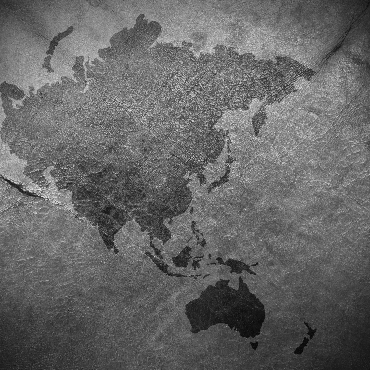U.S. ARMY SPECIAL FORCES TRAIN TAIWANESE TROOPS
Taiwanese soldiers are receiving permanent training from U.S. Army Green Berets, according to a report from United News Daily, a Taipei-based newspaper. The U.S. Army deployed a number of instructors to the Kinmen Islands, a grouping of Taiwanese islands on the West side of the strait, just six miles from the Chinese coast. While rotational U.S.-Taiwan military exchanges have been widely known for some time, details were sparse. When pressed on the matter, U.S. Defense Department spokesperson Lt. Col. Martin Meiners said, "I would highlight that our support for, and defense relationship with, Taiwan remains aligned against the current threat posed by the People's Republic of China." The deployment came out of a provision in the 2022 National Defense Authorization Act (NDAA). (Newsweek, February 8, 2024)
MARINES GO VIRTUAL TO ADDRESS LACK OF INDO-PACIFIC TRAINING GROUNDS
Concerns have long persisted about the resiliency of the U.S. military's presence in the Indo-Pacific in the event of a war with the People's Republic of China (PRC). Even so, the U.S. Marine Corps is facing a related problem today: a lack of available training areas in the region. While the U.S. boasts training facilities on islands like Okinawa and Guam, expanding operations in these places has proven difficult. "You can't do indirect fire in Okinawa," remarked Col. Marcus Reynolds, the Marine Corps Systems Command's program manager for training systems, in a recent interview. To that end, the branch recently unveiled Project Tripoli, a virtual training simulation to substitute for forward-deployed training. It is not immediately clear whether the new program will be successful, but its existence underscores longstanding questions about America's future military footprint in the Indo-Pacific. (National Defense, February 16, 2024)
WITH AN EYE ON CHINA, JAPAN ANNOUNCES MARITIME DOMAIN AWARENESS AID
For over a decade, Beijing has advanced extralegal territorial claims in the South China Sea. Over the past few years, however, the PRC's actions in defense of those claims have grown increasingly belligerent, from risky air intercepts to close-proximity boat passages. Competing claimant states in the South China Sea, like the Philippines, Indonesia, Malaysia, and Vietnam, cannot easily match Beijing's tactics, and Chinese coast guard vessels regularly contest their ships and outposts. Japan recently announced a program to bolster the maritime domain awareness of these four nations to help them resist China's encroachment. Immediate assistance will include new patrol ships and advanced radar, but could eventually entail reconnaissance drones and manned surveillance aircraft as well. (South China Morning Post, February 13, 2024)
HANOI POISED FOR EXPLOSIVE GROWTH
If current trends continue, Vietnam is set to enjoy the greatest wealth growth of any nation in the world. A recent report from New World Wealth, a market intelligence firm, and law firm Henley & Patterns projects that Vietnam's GDP per capita is set to spike 125% over the next ten years. The study also projects that Hanoi will lead the world in the number of millionaires. The primary driver of this expected growth is manufacturing, from low-end sectors like textile and clothing to high-end business like tech. Vietnam's proximity to China and integration in commercial shipping have also positioned Hanoi to benefit from international businesses looking to diversify their China exposure in the wake of increasingly fraught U.S.-China relations. (CNBC, February 21, 2024)
CAMBODIA'S AIRPORT DREAMS STALL
Plans to build an airport in Cambodia's Siem Reap, a city heavily reliant on tourism, have ground to a halt after Chinese investors walked away from the project. More broadly, Chinese backers have pulled out of a number of high-dollar Belt and Road Initiative (BRI) projects in Cambodia in recent years. Despite initial high hopes, tourism has failed to return to pre-pandemic levels, and airports across Cambodia are struggling.
As the BRI's momentum continues to slow and Beijing puts up fewer resources for high-profile construction projects, undertakings like the Siem Reap airport may presage a shift in Chinese foreign development policy. According to Arizona State University professor Sophal Ear, "The money is drying up, the political and security considerations cannot alone drive the decision-making." (Nikkei Asia, February 23, 2024)
Want these sent to your inbox?
Subscribe
Indo-Pacific Monitor No. 36
Related Categories:
International Economics and Trade; Military Innovation; Science and Technology; Warfare; China; Japan; Southeast Asia; Cambodia; Vietnam; Taiwan
